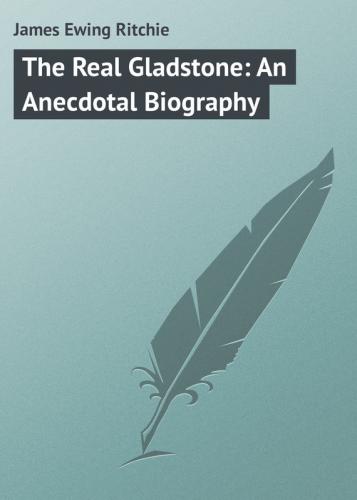Of colonial Bishops Mr. Gladstone had a high admiration. In 1876 he wrote: ‘It is indeed, I fear, true that a part – not the whole – of our colonial episcopate have sunk below the level established for it five-and-thirty years ago by the Bishops of those days. But how high a level it was! and how it lifted the entire heart of the Church of England!’
Here it is as well to give some further particulars as to Mr. Gladstone’s action with regard to Church matters. In 1836 Mr. Gladstone left the Church Pastoral Aid Society, of which he had become one of the vice-presidents, in consequence of an attempt to introduce lay agency. At all times he was ready to guard and vindicate the religious character of his alma mater. On one occasion Lord Palmerston had expressed a reasonable dislike of a system which compelled the undergraduates ‘to go from wine to prayers, and from prayers to wine.’ Mr. Gladstone, in reply, said he had a better opinion of the undergraduates who had been so lately his companions. He did not believe that even in their most convivial moments they were unfit to enter the house of prayer. Mr. Gladstone was one of a committee which met at the lodgings of Mr. (afterwards Sir Thomas) Acland in Jermyn Street, which led to the formation of Boards of Education for the different dioceses, and to the establishment of training colleges, with the double aim of securing religious education for the middle classes and the collegiate education of the schoolmasters.
Mr. Gladstone’s ecclesiastical leanings soon brought him back to Parliamentary life, in connection with Archbishop Tait’s Public Worship Regulation Bill. The grounds of his opposition he affirmed in the following resolutions:
‘1. That in proceeding to consider the grounds for the Regulation of Public Worship this House cannot do otherwise than take into view the lapse of more than two centuries since the enactment of the present rubrics of the Common Prayer-Book of the Church of England; the multitude of particulars combined in the conduct of Divine service under their provisions; the doubt occasionally attaching to their interpretation, and the number of points they are thought to have left undecided; the diversities of local custom which under these circumstances have long prevailed; and the unreasonableness of proscribing all varieties of opinion and usage among the many thousands of congregations of the Church distributed throughout the land.
‘2. That this House is therefore reluctant to place in the hands of any single Bishop – on the motion of one or more persons, however defined – greatly increased facilities towards procuring an absolute ruling of many points hitherto left open and reasonably allowing of diversity, and thereby enforcing the establishment of an inflexible rule of uniformity throughout the land, to the prejudice in matters indifferent of the liberty now practically existing.
‘3. That the House willingly acknowledges the great and exemplary devotion of the clergy in general to their sacred calling, but is not on that account the less disposed to guard against the indiscretions or thirst for power of other individuals.
‘4. That this House is therefore willing to lend its best assistance to any measure recommended by adequate authority, with a view to provide more effectual security against any neglect of, or departure from, strict law which may give evidence of a design to alter, without the consent of the nation, the spirit or the substance of revealed religion.
‘5. That in the opinion of this House it is also to be desired that the members of the Church having a legitimate interest in her services should receive ample protection against precipitate and arbitrary changes of established customs by the sole will of the clergyman and against the wishes locally prevalent amongst them, and that such protection does not appear to be afforded by the provisions of the Bill now before the House.
‘6. That the House attaches a high value to the concurrence of Her Majesty’s Government with the ecclesiastical authorities in the initiative of legislation affecting the Established Church.’
In moving these resolutions, Mr. Gladstone’s speech was of the highest interest and importance; ‘but never, perhaps, in his long career,’ writes the biographer of Archbishop Tait, ‘did his eloquence so completely fail to enlist the sympathy even of his own supporters, and the resolutions were withdrawn.’ The Bill, opposed by Dr. Pusey on one side and Lord Shaftesbury on the other, was carried in a modified form. Eye-witnesses have described the debate on the second reading: ‘The House, jaded with a long and anxious sitting, was eager to divide. A clear voice was heard above the clamour. It was Mr. Hussey Vivian, an old and tried friend of Mr. Gladstone. He rose to warn him not to persist in his amendments; not twenty men on his own side of the House would follow him into the Lobby. Already deft lieutenants, mournful of aspect, had brought slips of paper to their chief, fraught, it seemed, with no good tidings. When the Speaker put the question, there was no challenge for a division. Amid a roar of mixed cheers and laughter, the six resolutions melted away into darkness.’
Sir William Harcourt was one of Mr. Gladstone’s principal opponents in the course of the debate. In Committee there was rather an amusing passage of arms between
